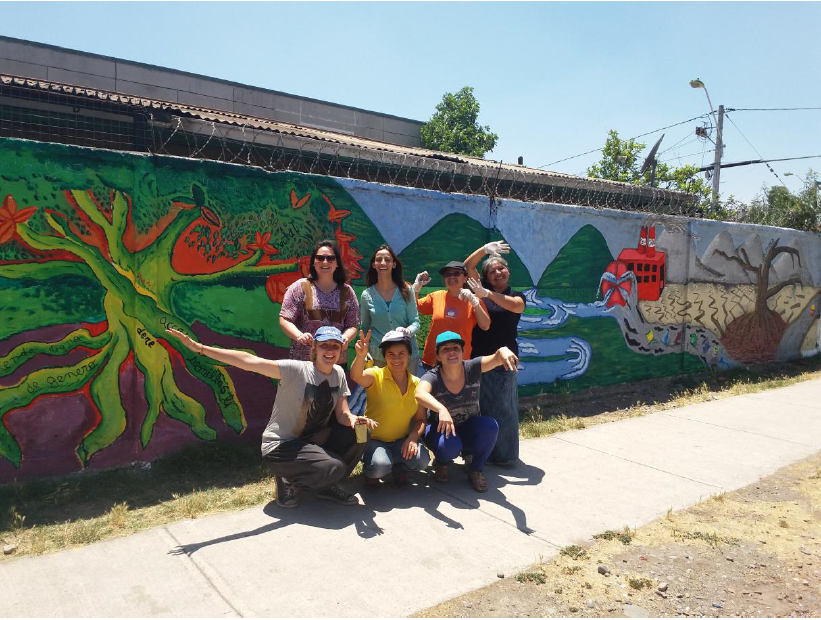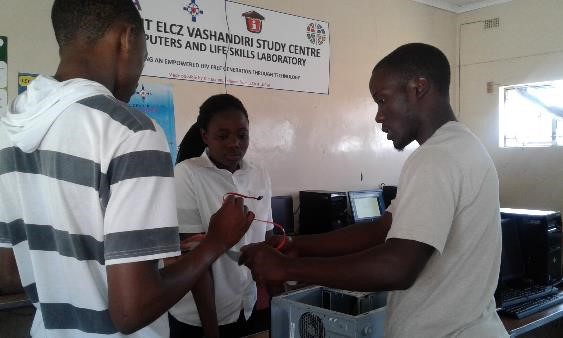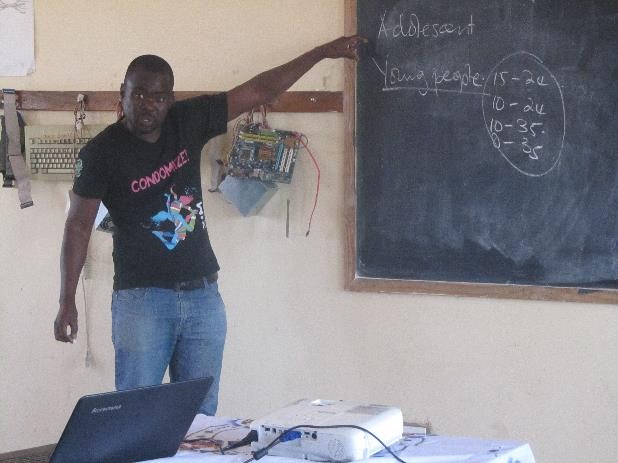World Health Day, sponsored by the World Health Organization, is an opportunity to raise awareness of global health issues. It is celebrated every April 7. This year, we are pleased to have a guest post from Katy Ajer. Katy program director of health and sustainable development for the ELCA’s Global Mission unit.
“Why should health be a priority within ELCA World Hunger programs?”
This was a question raised during the interview process for the position I currently hold as Program Director of Health and Sustainable Development within ELCA Global Mission. However, as we celebrate World Health Day – acknowledging all the efforts that are made throughout the world to improve the health of individuals and communities and the work that still needs to be done – I think the more important question is HOW are we a church called to respond to health inequalities in the United States and around the world.
We are called as a church to respond to health inequalities because those health inequalities are frequently not the result of biological chance but the result of other systemic injustices and power dynamics. We know that health is not in a silo but is deeply interconnected with hunger and poverty. The graphic below provides a visual of all the aspects of our lives that affect our health.
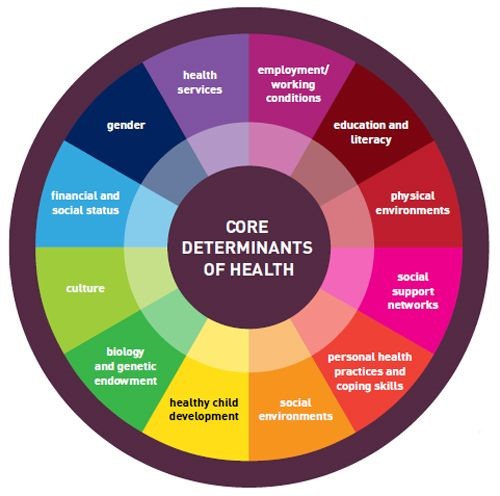 We know that health injustice is in direct relation to economic justice. We know that those who are poorest are least likely to be able to access health services, medicine, or even the clean water and nutritional food that would help prevent some of the diseases. We know that they oftentimes have a cyclical relationship – once sick, people miss work, resulting in less money for the necessary treatment and continued worsening health.
We know that health injustice is in direct relation to economic justice. We know that those who are poorest are least likely to be able to access health services, medicine, or even the clean water and nutritional food that would help prevent some of the diseases. We know that they oftentimes have a cyclical relationship – once sick, people miss work, resulting in less money for the necessary treatment and continued worsening health.
All of which brings us back to the question above: HOW are we as a church called to respond to health inequalities in the United States and around the world. When looking at the graphic to the right and all the areas that influence our health, it can often be overwhelming to decide where and how to start implementing efforts to improve health. In my short time at the ELCA, I’ve had the pleasure of learning how many of our companions around the world, with support from ELCA World Hunger, work to alleviate the short-term suffering of individuals while taking multi-pronged approaches to improve the long-term health of the communities. Below are some examples of this important work.
Educación Popular en Salud (EPES)
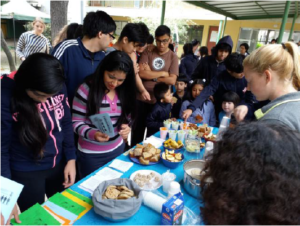 EPES in Chile provides nutritional courses with a twist through its Promotion of Nutrition project. It looks at the issue with a focus on rights and with attention to gender, in addition to nutrition value. What this means in practice is that in addition to education about nutritional foods and recipes, they examine the food production chain and how that can affect the nutrition of the food and the health of the surrounding environment, which in turn affects the health of the people. The participants then decide on actions to take to share this information and encourage healthy food choices and changes in food production or availability so that all may have access to nutritious food. Most recently, they have created a cookbook filled with nutritious recipes as well as a mural on a street advocating for decreased production pollution that can impact the ability to cultivate crops and the quality of the food.
EPES in Chile provides nutritional courses with a twist through its Promotion of Nutrition project. It looks at the issue with a focus on rights and with attention to gender, in addition to nutrition value. What this means in practice is that in addition to education about nutritional foods and recipes, they examine the food production chain and how that can affect the nutrition of the food and the health of the surrounding environment, which in turn affects the health of the people. The participants then decide on actions to take to share this information and encourage healthy food choices and changes in food production or availability so that all may have access to nutritious food. Most recently, they have created a cookbook filled with nutritious recipes as well as a mural on a street advocating for decreased production pollution that can impact the ability to cultivate crops and the quality of the food.
Lutheran Communion in Southern Africa (LUCSA)
LUCSA InfoHuts projects in Namibia, Zimbabwe, and Malawi work to contribute to a generation free of HIV and AIDS by combining life skills and sexual and reproductive health education with computer use training. At first it may seem like an odd mixture of topics for a project; however, as with many of the projects that combine health education with livelihood training, students leave more knowledgeable about how to prevent and/or treat HIV and AIDS and have a new employable skill that allows them to earn money for nutritious food, medications and other needs to maintain good health or treat any future health concerns early on. By addressing both health and poverty, the impact is often greater and more transformative.
Lutheran Health Care Bangladesh (LHCB)
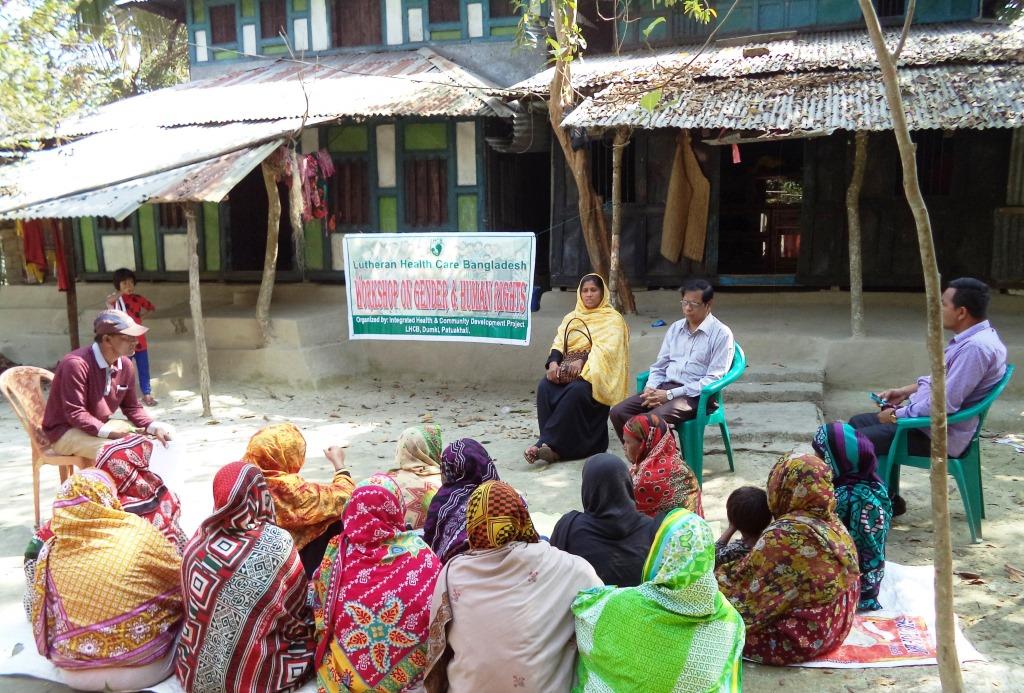 LHCB provides quality clinic care as a hospital and mobile clinic but also operates activities focusing on other aspects that impact the health of their patients and community. They provide livelihood training in agriculture development, vegetable gardening, poultry and livestock, and tree planting. They organize the installation of safer stoves that are less harmful for the lungs of the women who cook over them. LHCB also works on raising awareness and mobilizing their community through workshops on gender and human rights, advocacy meetings, and community dialogues. Recently, they arranged a space in the hospital for breastfeeding to encourage the practice while providing mothers with privacy should they desire.
LHCB provides quality clinic care as a hospital and mobile clinic but also operates activities focusing on other aspects that impact the health of their patients and community. They provide livelihood training in agriculture development, vegetable gardening, poultry and livestock, and tree planting. They organize the installation of safer stoves that are less harmful for the lungs of the women who cook over them. LHCB also works on raising awareness and mobilizing their community through workshops on gender and human rights, advocacy meetings, and community dialogues. Recently, they arranged a space in the hospital for breastfeeding to encourage the practice while providing mothers with privacy should they desire.
How are we as a church called to respond to health inequalities in the United States and around the world this World Health Day?
I had been in this position for little over a month when we recognized World HIV Day here. One of the most impactful parts of the day was a reflection read aloud by Kim Serry, who attended the US Conference on AIDS in 2016 with a delegation from the ELCA. Throughout the reflection, she came back time and again to the proclamation of African theologians, “The Body of Christ has AIDS.” She also paraphrased Melissa Harris Perry who made a similar claim:
“Our collective HIV status matters. It is not to say that our individual status does not matter, it certainly does. It means that our communal life suffers when individuals in our community suffer. It means that our communities are gravely sick when power and privilege determine who is shielded from harm and who will suffer it… and a pharmaceutical will not fix that.”
An aspect that is present within each of these projects that positively impacts health (although we often don’t think about it in these terms) is the sense of community that arises. These and many other ELCA World Hunger-supported projects work with groups over time, and these groups become social support systems that can help participants maintain good health physically, emotional, and spiritually. This support can arise through sharing knowledge between neighbors, helping one another recognize health symptoms that may not be noticed otherwise, lending money through Village Savings and Loan Groups for medication or transportation to a hospital, and, importantly, listening to one another and praying together during difficult times.
We are part of that Body of Christ. While some of us receive the burden of poor health unfairly, we all suffer. We are part of the social support system that is so important in creating equality that all may have the best health possible – that there is justice in who has access to health care and medication, to clean water and nutritious foods, to environments free from violence, and to opportunities to learn.
So, this World Health Day I give thanks to our partners, companions, and missionaries around the world and in the United States, striving to alleviate short-term pains and illnesses and to address root causes of health inequalities to ensure that all can live a healthy and joyful life. Thank you for your work and thank you for teaching us how to address health injustices with a Christian heart.
Photos above are courtesy of: EPES (Chile), Evangelical Lutheran Church in Zimbabwe, and Lutheran Health Care Bangladesh.

